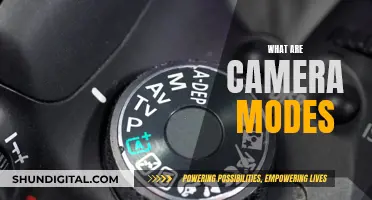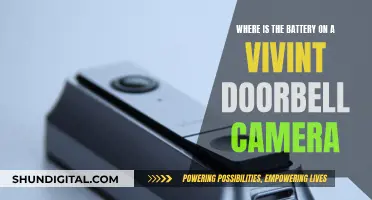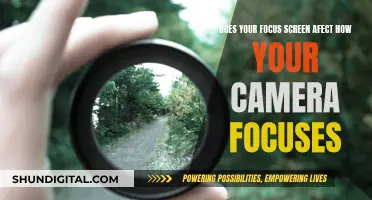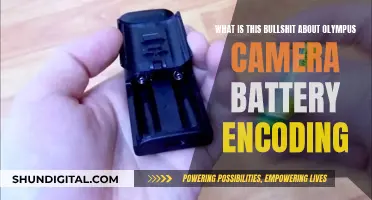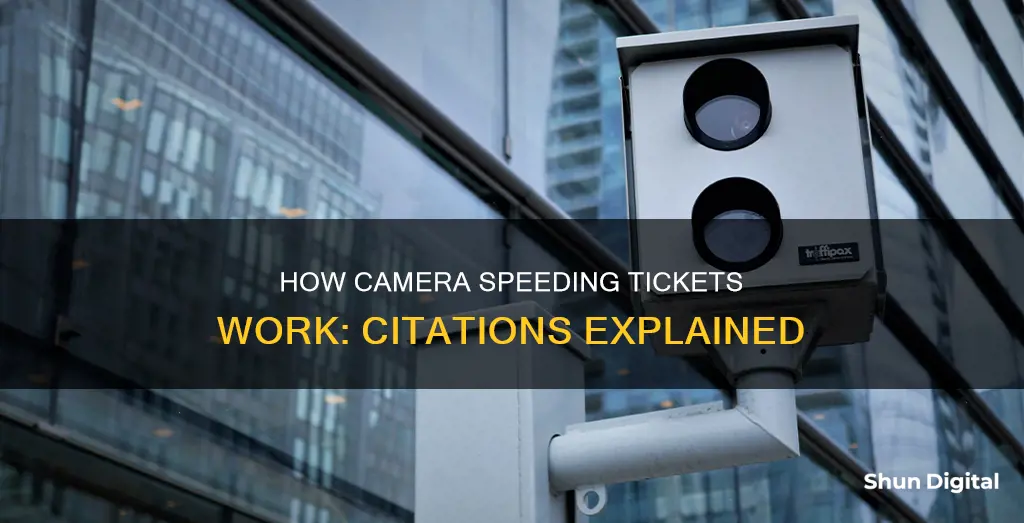
Speeding tickets are one of the most common traffic offences. They can be issued by police officers or captured via speed cameras. Speed cameras are usually set up near school zones or areas where drivers often exceed the speed limit. When a radar detects a vehicle exceeding the speed limit, it triggers the camera to take a picture of the vehicle, along with details of the violation such as date, time, location and the vehicle's number plate. The registered owner of the vehicle then receives a citation through the mail and has the option to pay the fine or contest the ticket in court. While some people consider these tickets to be minor offences, they can result in unwanted fines and court appearances.
| Characteristics | Values |
|---|---|
| Nature of the ticket | Civil citation |
| Issuing authority | Police department |
| Ticket issuance | Mailed to the registered owner of the vehicle |
| Ticket details | Date, time, location, speed, vehicle details |
| Penalty | Fine, possible court date |
| Fine amount | $40 |
| Points on license | No |
| Notification period | 10-90 days |
| Response period | 30 days |
| Contesting the ticket | Possible in court or by providing evidence |
| Ticket dismissal | Possible if the camera malfunctioned or the driver wasn't identified |
What You'll Learn
- Camera speeding tickets are mailed to the registered owner of the vehicle
- These tickets are considered civil violations and do not carry points
- They are a common tool for reducing speeding in high-risk areas
- They are controversial and laws regarding their use vary by state
- They can be disputed in court and may be dismissed

Camera speeding tickets are mailed to the registered owner of the vehicle
Speeding tickets captured by camera are generally treated as citations and are mailed out to the registered owner of the vehicle. This is the case in Maryland, Ontario, and New York.
Camera speeding tickets are usually issued when a vehicle travels 12 or more miles per hour over the posted speed limit. The camera system records the speed of the vehicle, the license plate, the date and time of the violation, and the direction the vehicle is travelling in. This data is then reviewed by a police or provincial offences officer, who will issue a citation if they believe a speeding violation has occurred.
The ticket is then mailed to the registered owner of the vehicle, according to the license plate shown in the photograph. The ticket will include information about the detected speed, the allowed speed limit, and the date and time of the violation. The owner of the vehicle will then have several options, including paying the fine or contesting the ticket in court.
Camera speeding tickets are typically treated as civil citations and carry only financial penalties. There are usually no points assigned to an individual's driver's license or insurance implications. The violation is registered to the vehicle itself, rather than the individual driver. However, there may be exceptions, such as in the case of commercial vehicles with CVOR points.
Unlocking Moto Z Play's Camera Modes: A Step-by-Step Guide
You may want to see also

These tickets are considered civil violations and do not carry points
Camera speeding tickets are considered civil violations and do not carry points on an individual's license. This means that they are similar to parking tickets in that they are not criminal violations and do not carry any further penalties beyond a small fine. The fines for camera speeding tickets are usually irritatingly small, and there are no points assigned to an individual's driver's record for these types of convictions. These tickets are typically issued when a vehicle is captured travelling 12 or more miles per hour over the posted speed limit.
The consequences of a camera speeding ticket are relatively minor. In most cases, the registered owner of the vehicle will receive a citation through the mail, which they can then choose to pay or contest in court. If the ticket is paid, the charge will become part of the driving record, but there will be no points assigned to the license. This means that there will be no criminal ramifications, and vehicle insurance providers will not be notified. Paying the fine is considered a guilty plea, and the individual will typically have the option to pay online, by mail, or in person.
On the other hand, if the individual chooses to contest the ticket, they may be able to reduce or eliminate the fine or have the citation dismissed altogether. The process for contesting a camera speeding ticket varies depending on the jurisdiction, but it typically involves signing and mailing the ticket to a specified address or appearing in court. In some cases, the individual may need to provide additional evidence or documentation to support their case. It's important to note that failing to respond to a camera speeding ticket can result in additional fees and penalties.
While camera speeding tickets are generally considered civil violations, there may be exceptions depending on the specific location and circumstances. For example, in some places like Washington, D.C., a ticket from an automated traffic camera system is classified as a moving violation. However, even in these cases, there may be some leeway, and individuals may not receive points on their license or have their license suspended for non-payment.
Replacing Li-ion Camera Batteries: A Step-by-Step Guide
You may want to see also

They are a common tool for reducing speeding in high-risk areas
Speed cameras are a common tool for reducing speeding in high-risk areas. They are often placed in locations where traffic safety is a priority, such as school zones or residential areas. These cameras are designed to capture images of vehicles that are speeding and issue citations to the owners of those vehicles. The use of speed cameras as a traffic enforcement tool has been a subject of debate, with critics arguing that they infringe on civil liberties and are more about revenue generation than improving road safety. However, proponents of speed cameras argue that they effectively reduce speeding and make roads safer for pedestrians and other road users.
Speed cameras are typically placed in areas with a high risk of speeding-related accidents. In Maryland, for example, speed cameras are located in residential areas and school zones where the posted speed limit is 35 miles per hour or less. The criteria for selecting these locations include the proximity of schools, parks, work zones, and crosswalks. Similarly, in Ontario, speed cameras are implemented as part of the Automated Speed Enforcement (ASE) program and are placed in areas where traffic safety is crucial, such as school zones and slow residential streets.
The process of issuing a citation through a speed camera is relatively consistent across different locations. Once a vehicle is captured speeding by the camera, a citation is generated and mailed to the registered owner of the vehicle based on the licence plate number. In Maryland, a police officer reviews the photograph taken by the speed camera before a citation is issued, ensuring the accuracy of the speeding violation. This process is similar in Ontario, where a Provincial Offences Officer scrutinizes the data to confirm the speeding violation before issuing a ticket.
The use of speed cameras as a tool for reducing speeding has been a subject of debate. While law enforcement groups and traffic safety advocates argue that speed cameras save lives by reducing speeding and improving road safety, critics claim that they infringe on civil liberties and are more about generating revenue for municipalities. In the United States, the use of automated enforcement cameras to enforce speed limits and red lights has become more common in the 21st century, but there is still ongoing controversy over their effectiveness and legality.
Despite the debate surrounding their use, speed cameras have been shown to be effective in reducing speeding and improving road safety. In Maryland, the purpose of speed cameras is explicitly stated as reducing the number of speed-related crashes and increasing pedestrian safety. Additionally, the fines associated with speed camera infractions are typically not excessive, and there are no points assigned to an individual's driver's record or insurance implications. As a result, speed cameras are an important tool for reducing speeding in high-risk areas and encouraging safer driving behaviours.
Reviving Camera Batteries: Simple Tricks to Try
You may want to see also

They are controversial and laws regarding their use vary by state
The use of camera speeding tickets is highly controversial, with critics raising questions about public safety, privacy, and drivers' rights. While some states in the US allow the use of these cameras for enforcing traffic laws, others have banned them. Even within states that allow their use, laws vary.
For example, in Maryland, speed cameras are placed in residential areas and school zones where the speed limit is 35 miles per hour or less. The cameras are used to capture individuals and their vehicles when they are speeding, and a citation is then issued. The fines for this are irritatingly small, and there are no points assigned to an individual's driving record.
In New York, red-light camera tickets are treated like parking violations, with the registered owner of the vehicle, rather than the driver, held responsible. In contrast, in California, the driver, rather than the owner of the vehicle, must be prosecuted.
In Florida, a red-light camera photo is considered hearsay and is therefore inadmissible in court. However, in other states, these photos are admissible and can be used to prosecute drivers.
TCL DV007: What's the Camera's Charger Port Type?
You may want to see also

They can be disputed in court and may be dismissed
Speeding tickets issued by cameras can be disputed in court and may be dismissed. Here are some steps and strategies to dispute a speeding ticket:
Steps to Dispute a Ticket:
- Request a Hearing: In most jurisdictions, you must request a hearing within a specified time frame, usually 30 days from when the ticket was issued, to avoid late penalties. You can typically dispute a ticket online, by mail, via a mobile app, or in person at a Department of Finance business center during business hours.
- Meet Deadlines: Ensure you meet all deadlines. Contacting entities other than the Department of Finance does not change the deadline. If you request a hearing after the deadline and are found guilty, you will be subject to late penalties.
- Accuracy: Ensure that all statements, information, and documents you submit are true, accurate, and reliable to the best of your knowledge. Providing false information may result in penalties.
Strategies for Disputing a Ticket in Court:
- Officer's Absence: If the issuing officer fails to appear in court, there is a high chance that your ticket will be dismissed.
- Subjective Conclusion: Challenge the officer's subjective conclusion about your actions. For instance, if you received a ticket for an unsafe left turn, you can argue that your actions were safe and provide reasons for your assessment, such as new tires on a smooth road causing tire squealing.
- Observation of Events: If your case relies on the officer's observation of events, you can challenge their perception or ability to accurately assess the situation. Provide evidence, such as witness statements, diagrams, or photographs, to support your version of events and increase your chances of winning.
- Mistake of Fact: Prove that your conduct was based on a legitimate mistake of fact. For example, if a broken branch obscured a stop sign after a storm, a judge might dismiss your failure to stop at the sign.
- Legal Necessity: Demonstrate that you were forced to violate the law to avoid causing serious and immediate harm to yourself or others. For instance, if you swerved across a double yellow line to avoid hitting a pedestrian, you broke the law but did so to prevent harm to the pedestrian.
Polaroid Camera Battery Guide: Choose the Right Power Source
You may want to see also
Frequently asked questions
Camera speeding tickets are considered citations. They are mailed to the registered owner of the vehicle, and can be paid online or by mail.
Camera speeding tickets are considered civil violations and do not carry any further penalties beyond a small fine. No points are added to the driver's license and vehicle insurance providers are not notified.
Failure to respond to a camera speeding ticket can result in additional fees and penalties. If the ticket is not paid, it may be sent to a collection agency which can affect your credit score.
Yes, camera speeding tickets can be contested in court and may lead to a reduction in fines or dismissal of the citation.


